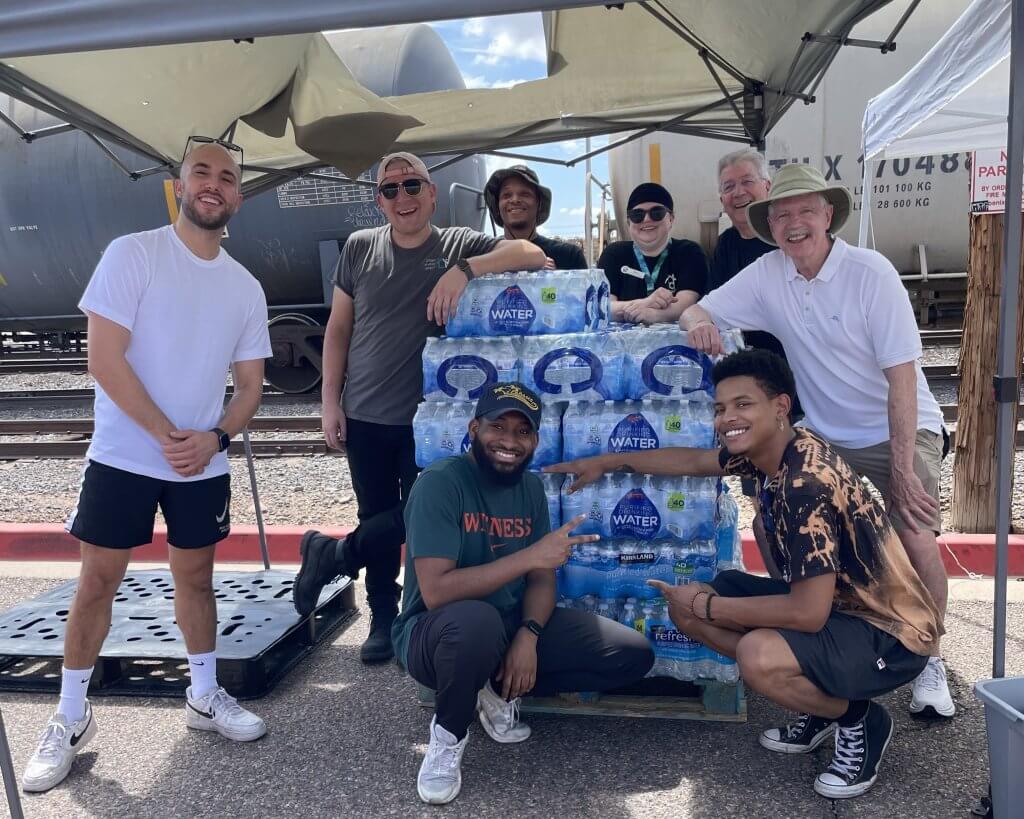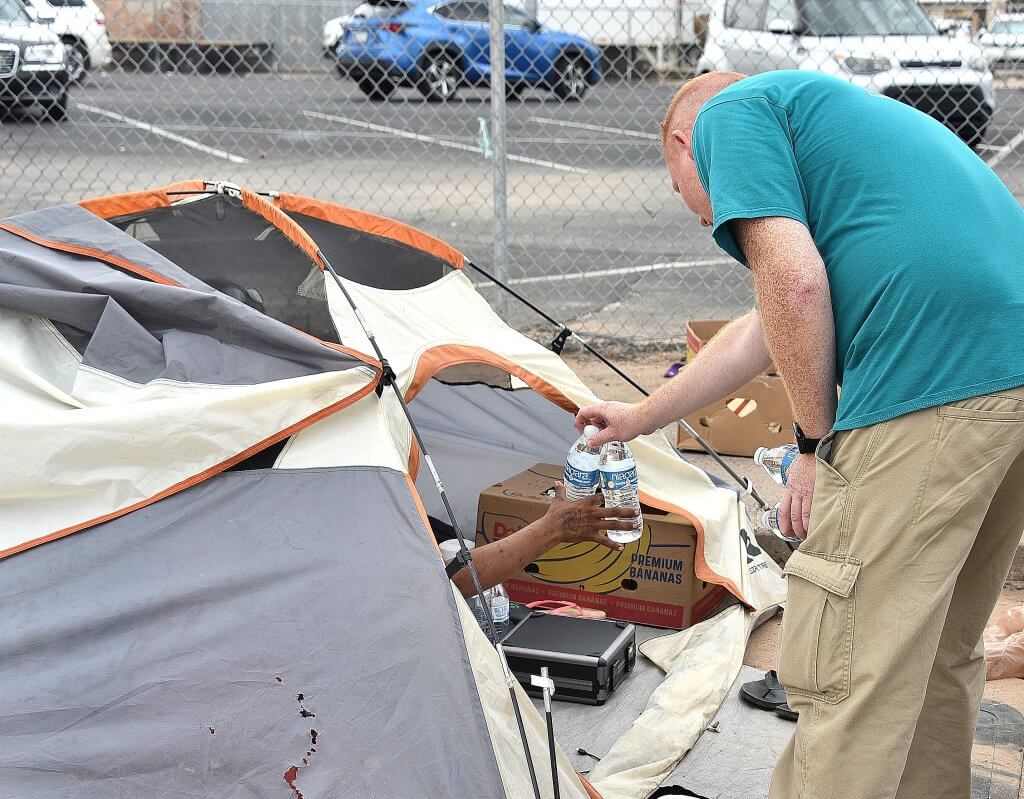No one is unaffected by the Arizona heat in summer.
Keys to Change’s annual ThirstAid effort provides an invaluable service for vulnerable populations around their Downtown campus to stay hydrated.
From May through September, their Key Campus, which includes 15 service providers, needs more than 100,000 water bottles every month to distribute to clients. This is an increasing collective effort that’s expanded to many local partners.
Yet ThirstAid began with a much narrower focus.
St. Joseph the Worker, one of the Campus’ many providers, first conceptualized the campaign to keep job seekers hydrated as they transitioned out of supportive services. Their efforts began in 2006 after 30 individuals experiencing homelessness died of heat-related deaths the previous year.
“ThirstAid was brought to the Campus to become a rallying cry for all water needs on the campus, not just for St. Joseph the Worker but all the clients we collectively see, which is around 1,000 people every day,” said Kim Beaudoin, Keys to Change’s Development Manager.

Volunteers come together to donate their time and bottles of water each summer. (Photo: Keys to Change)
By 2011, the Key Campus (then known as the Human Services Campus) integrated the campaign into the broader needs of providing water for all of its non-profits.
Staying hydrated is a matter of survival for their clients, so much so that a pallet of water is no more than 50 feet away at any given moment. Key Campus trains everyone on their site, from staff to volunteers, to recognize the signs of heat exhaustion and heat stroke and their differences.
The work has only intensified as summer temperatures have become unrelenting. When Arizona experienced some of its highest recorded temperatures in July 2023, it translated to an increased demand for water at any given moment.
Beaudoin said the Key Campus set a monthly fundraising goal of 100,000 bottles at the time. They eventually recalibrated their efforts after they used 150,000 bottles last July alone. For that year, a preliminary report by the Maricopa Association of Governments (MAG) determined that 645 people died from heat-related illnesses — Keys to Change notes that many deaths occurred around the campus.
As Keys to Change heads into summer with potentially more intense heat on the horizon, separate campaigns from fellow stakeholders have produced community-driven results, including by PCA Members:
Last year, EPS Group ran a campaign ranging from employer-matched monetary donations to donating pallets of bottled water. At the same time, MariSol Federal Credit Union set up spots inside their branch for customers to scan a custom QR code to donate toward supplies.
However, the ongoing efforts come at a time when their influence as a service provider extends beyond the scope of the original campus gates west of Downtown.

A representative from Keys to Change (formerly Human Services Campus) lends a helping hand to those in need. Photo: Keys to Change
Keys to Change is a collection of non-profit organizations working toward a unified goal of ending homelessness. In early January, Keys to Change rebranded itself from its previous identity, which it had used since opening in 2005.
Their physical presence has diversified recently, including off-site transitional housing properties in Central Phoenix and the East Valley, a mobile resource event called Project Connect in Surprise, and a street outreach initiative covering most of Maricopa County.
“A name like Keys to Change helps relay the message that our commitment is to ending homelessness on a systemic level, in addition to our commitment to transforming individual lives,” said Beaudoin. We’re more than just service providers—we’re change agents.”
To donate packages of water for the ThirstAid campaign, people can drop off supplies at their Harrison Street entrance every first Saturday of the month between 9 a.m. and 12 p.m. between May and September. Their first drop-off of the season begins on Saturday, May 4.
If donors are unable to donate bottled water, they can provide monetary donations toward water and other heat relief items. Keys to Change also accepts needed items for heat relief efforts, including cooling towels and beverage coolers. For information, visit the Keys to Change site.
Learn more about PCA’s Social & Housing Advancement Committee’s (SHA) ongoing advocacy work, which includes supporting Keys to Change, here.



